Space
Sign up for our newsletter
We summarize the week's scientific breakthroughs every Thursday.
-
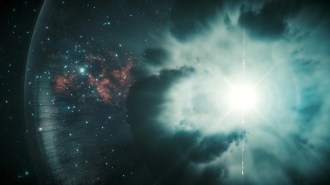 Space
SpaceHow two gamma-ray bursts created record-breaking high-energy photons
Light packing up to 1 trillion electron volts of energy bolsters a theory for how these cosmic explosions produce such high-energy radiation.
-
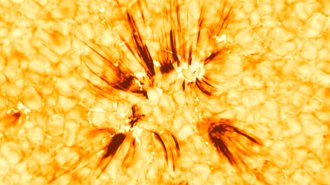 Space
SpaceRealigning magnetic fields may drive the sun’s spiky plasma tendrils
Solar spicules emerge near counterpointing magnetic fields, hinting that self-adjusting magnetism creates these filaments, which may heat the corona.
-
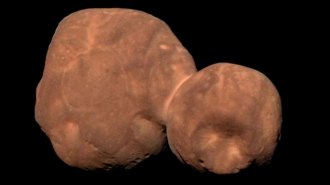 Space
SpaceNASA gave Ultima Thule a new official name
The distant world briefly visited by New Horizons is now called Arrokoth, a Powhatan word that means “sky.”
-
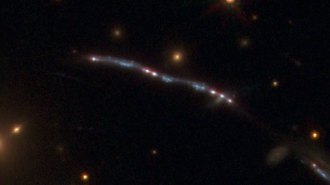 Space
SpaceLight leaking from a distant galaxy hints at a cosmic makeover’s origins
Ultraviolet light slips through a hole in a distant galaxy’s gas. Older galaxies might have used the trick to ionize most of the universe’s hydrogen.
-
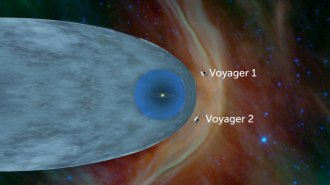 Space
SpaceVoyager 2 reveals the dynamic, complex nature of the solar system’s edge
With two spacecraft outside the sun’s magnetic bubble, researchers get a new look at the boundary between the sun and its galactic environment.
-
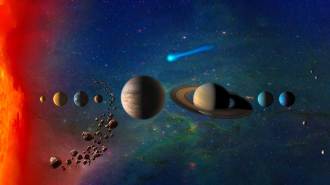 Space
SpaceRules guarding other planets from contamination may be too strict
Voluntary international guidelines for visiting the moon, Mars and other places — and for bringing stuff back to Earth — are overly cautious, scientists say.
-
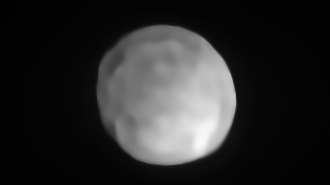 Space
SpaceThe solar system may have a new smallest dwarf planet: Hygiea
New images reveal Hygiea is round, a final criterion for promoting the wee world from asteroid to dwarf planet status.
-
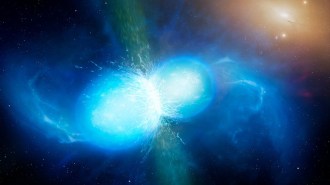 Space
SpaceStrontium is the first heavy element detected from a neutron star merger
The discovery of strontium created inside a neutron star smashup gives the clearest picture yet of what goes on inside this chaotic environment.
-
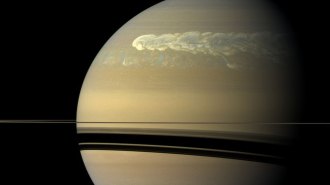 Planetary Science
Planetary ScienceAstronomers have spotted a new type of storm on Saturn
In 2018, telescopes on Earth and in space identified a never-before-seen kind of storm activity on the ringed planet.
-
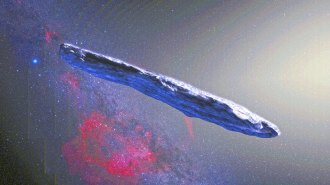 Space
SpaceHow the second known interstellar visitor makes ‘Oumuamua seem even odder
With its gaseous halo and tail, the second discovered interstellar object, 2I/Borisov, looks basically like your run-of-the-mill solar system comet.
-
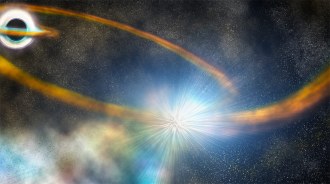 Space
SpaceA supermassive black hole shredded a star and was caught in the act
Astronomers have gotten the earliest glimpse yet of a black hole ripping up a star, a process known as a tidal disruption event.
-
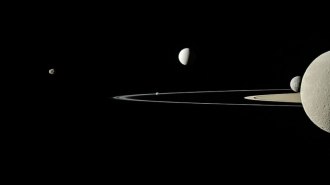 Space
SpaceWith 20 new moons, Saturn now has the most of any solar system planet
The discovery brings Saturn’s moon tally to 82. The previous record-holder, Jupiter, has 79.
By Sofie Bates